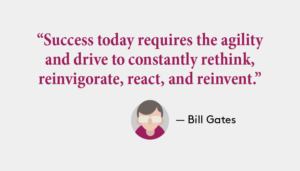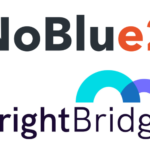When you’re helping the board understand that investing in cloud ERP software would be good for business, as with all purchases of a certain size, you may need to illustrate that the spend is worthwhile and the long-term benefits will exceed the short-term disruption.
Here we provide answers to three understandable arguments against upgrading from on-premise to cloud ERP software. Hopefully these will help you to convince the board to make the change.
“We’re getting by with our current on-premise ERP system, why should we spend time and money on implementing cloud ERP?”
According to independent research and advisory company Gartner, on-premise ERP systems will be relegated to legacy status by 2016. This is largely due to a diminishing lack of flexibility, usability and cost effectiveness.
These days, software must operate on all platforms and devices in order to meet changing business requirements. And employees expect to be able to access it anytime, anywhere – human behaviour is changing with improved technology; we can no longer wait for answers and demand instant information at our fingertips.
This is why many business leaders are finding their on-site ERP systems are no longer up for the job. You likely either have to be in the office to access it, or you would have to use a VPN connection to access it remotely, which is probably painfully slow and limited at times.
This is the reason why many companies are turning to cloud ERP solutions that deliver the functionality, flexibility and remote access required in today’s business world.
“We’ve spent too much money customising our on-premise ERP system to think about starting all over again”
There’s often a reluctance to upgrade outdated ERP systems because a great deal of investment has been sunk into their infrastructure and maintenance. Many companies have spent a significant amount of time and money highly customising their on-premise ERP to try and make it fit their business processes.
But if you have heavily customised and integrated your software, then upgrading to the newest version of that software could mean losing all of these customisations / integrations or having to do a full re-install. This often leads to it simply being left until it has become completely outdated.
The problem with this is using out of date software can be bad for your business. If you can’t access the newest features and innovations, how can you remain competitive?
Being stuck on an old version of your software could put you at a real disadvantage; it’s also possible that your software vendor may stop supporting your version altogether and stop issuing security updates and patches, which would put your business at risk.
With cloud-based ERP, you don’t need to worry about this. Upgrades take place automatically – as part of a subscription with a cloud solution provider, new updates or patches are applied to your operations as and when they become available, allowing you to take advantage of the latest features and innovations.
Any customisations or integrations you have carried out to make it fit your business are not usually impacted by the upgrades.
This means you don’t have to worry about any additional time or money being spent on implementing upgrades as is the case with on-premise ERP software. So although upgrading may seem like a real pain now, the long-term benefits will far outweigh the short-term disruption.
“We don’t have time to implement cloud ERP software across the business, and time is money!”
Whilst in the short-term you will need to spend time and resources choosing and implementing the right ERP software, and then providing high quality training to your staff, the long-term benefits will provide a very real return on investment.
Here are some ways that you will save time and monet in the long-term by implementing cloud ERP software:
- Access anytime, anywhere – your employees will be able to access and record data on the system when working away from the office, which is far more efficient. It also means that the information in your system is completely up-to-date and collaboration is made easier as staff will all be working from the same up-to-date information.
- Access to real-time business data – since cloud-based ERP systems enable easy access to real-time data, this means the information you have access to is completely up-to-date and will therefore enable you to make better business decisions.
- Easy to upgrade – upgrades take place automatically as part of a subscription with a cloud solution provider. New updates or patches are applied to your operations as and when they become available which means you don’t have to worry about any additional time or money being spent on implementing upgrades.
- Flexibility – the flexible nature of cloud ERP such as NetSuite means that you only pay for what you need – you can tailor it to your business by simply turning certain modules on or off.
- Enterprise-grade security – with a reputable cloud ERP provider, you can be sure that your software is protected by the best defences in the industry. They can afford to devote large resources to always maintain the latest protections, so you don’t have to.
By looking forward to the future and considering the benefits of cloud ERP, it’s easy to see how you will in fact save time and resources in the long run.
Like this article? Please share it on Twitter.
Please go ahead and share your tips and experiences in the comments box below.
NoBlue provides NetSuite ERP which is ideal for growing businesses and larger companies. If you’d like any further information, please get in touch with us!
Image courtesy of David Castillo Dominici at FreeDigitalPhotos.net









